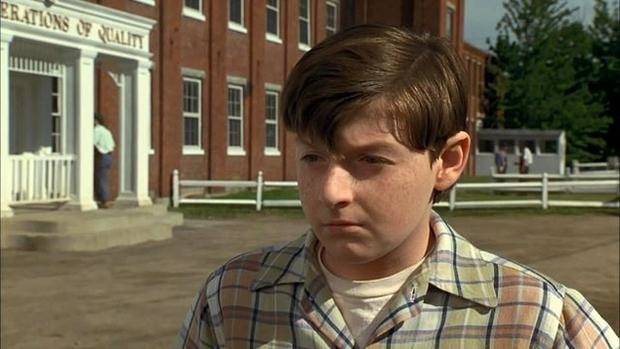10 Fun Facts Behind The Scenes Of 'Jumanji'
Jumanji came out in 1995 and fascinated audiences everywhere. It's a harrowing fictional plot that takes a boy Allan Parrish and traps him inside a board game for 26 years until new people decide to pick up the dice and continue the game. When he escapes, chaos ensues at every turn. Well, that's a gross understatement and summary of the iconic plot, but the point is, this film has stood the test of time as a cinematic classic.
For fans of Robin Williams, this was one of his finest performances.

Robin Williams explained, "[Williams' grandfather] had been very wealthy and when [he] died, they lost all of that and [Williams' father] was forced to work at a strip mine in Pennsylvania." That is why Williams felt his father allowed him to follow his own dreams, because of what his father had to give up in his life.

He continues to do active voice work to this day, and even had a role in the The LEGO Movie video game. Seems he's made quite a career for himself, which is no easy feat for a child actor to pull off.

When Williams tragically passed away, the town gathered for a makeshift memorial in his honor and even screened the film. "We thought it might be a good idea for us to do something good for the community in response, not only to commemorate Robin Williams because he was so impressive, but also because a little bit of our city is in the movie," explained Tim Horgan, The Colonial Theatre’s director of audience services.
It was truly a loss felt round the world, but we have this to remember him by.

Kirsten Dunst explained to the Chicago Tribune in 1995:
"He would crack us up all the time on the set. I learned a lot about improv from him. My favorite impression he did was Nell (the Jodie Foster character) going through a drive-through."
While co-star Bonnie Hunt said:
"When you walk on a set with Robin, it's like you're at a barbecue in his backyard. He really is a joy."
That seems like the most incredible experience: working with Williams, and enjoying free comedic burst between takes.

He explained growing up how the concept behind games like Monopoly were exciting, but in the end, when he would win, all he would be left with is fake money. So, he wrote Jumanji as a way to see, "if there were such a thing as a game board where whenever you landed on a square and it said something was going to happen, then it would really happen."

Williams explains in a 1995 interview with the Christian Science Monitor:
"I play a boy who has been swallowed up in the game. By the time he is able to come out, 26 years later, his parents are dead, and he feels lost and alone. That's something I can understand. As an only child, I had no siblings to play with, and my parents worked hard, and we moved around a lot."
In the clip above, you can see an 11-year-old Johansson put in her lines for her audition, but the part ultimately went to Kirsten Dunst. Seems they've both done well since either way, but how different might things have been if they'd chosen otherwise.

He says it means "many effects" in Zulu, but that's obviously a farce when you realize what he does to people who ask. In an interview with Entertainment Weekly he said, "I tell them it’s an island in the Caribbean. Book your travel there early."

He explained to the Philadelphia Inquirer:
"The premise [of] the book, and which is of value to the film story, is that there's anarchy and chaos and something uncontrollable inside an environment that we associate with control, which is the house. It's this surreal contrast of two things that don't go together: the quiet domesticity of a large and carefully tended house, and the utter chaos that shudders through it."
He luckily made contributions to a later draft.

Director Joe Johnston may have (read: most certainly was) playing with the symbolism of Allan Parrish having to overcome both oppressive men. Hence, that is why they look alike, and Allan must battle them rigorously throughout. If you refer back to #2, this may have had some serious metaphorical effects on Williams, as it may have been something he could also relate back to his family upbringing.
